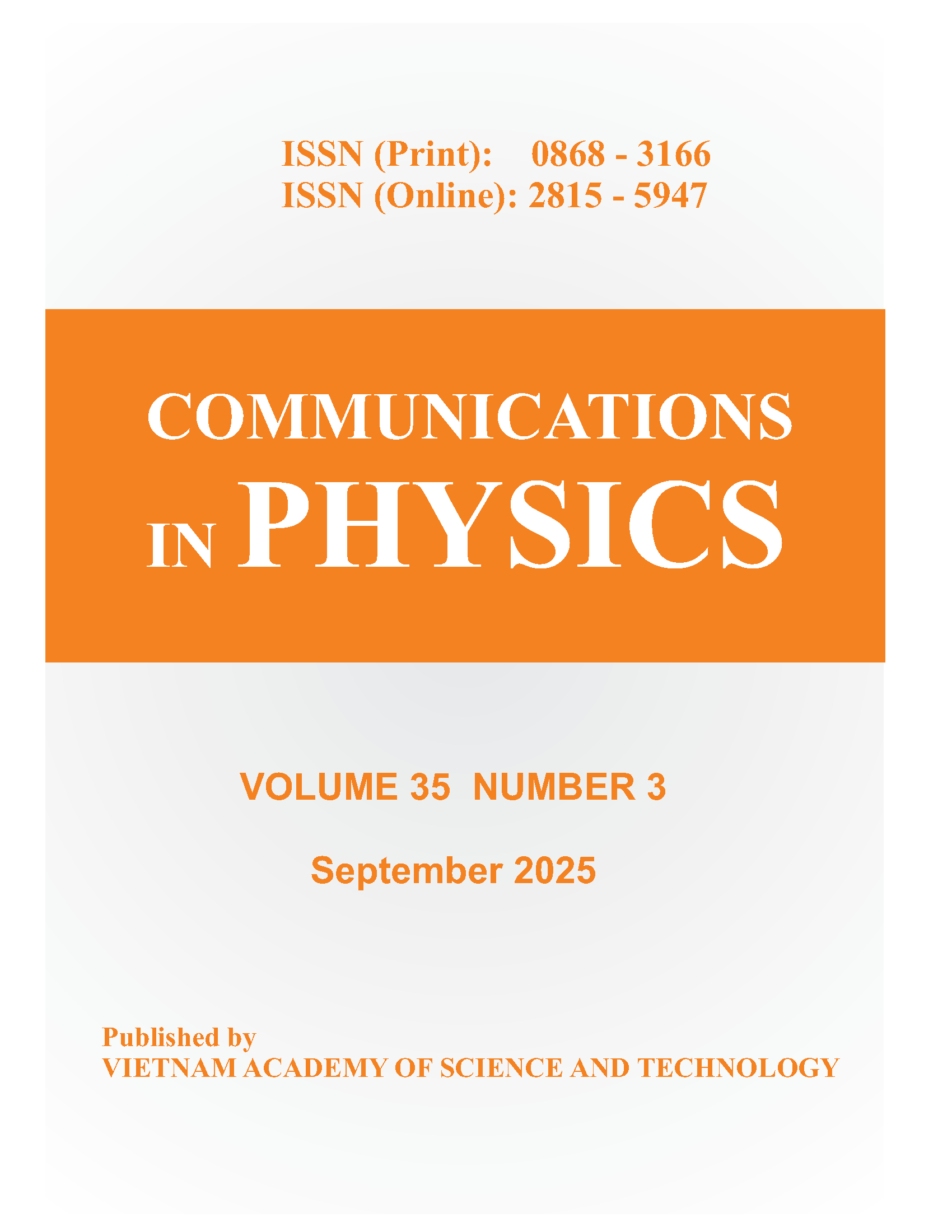Lowest Excited-State Impurity Binding Energy in InGaN/GaN Parabolic QWW: Magnetic Field Effect
Author affiliations
DOI:
https://doi.org/10.15625/0868-3166/23/3/2793Keywords:
Binding Energy, Parabolic Wire, Magnetic EffectAbstract
In this paper, we have investigated the magnetic field effect on the lowest excited-state binding energy of hydrogenic shallow-donor impurity in wurtzite (In,Ga)N/GaN parabolic transversal-section quantum-well wire (PQWW) using the finite-difference method within the quasi-one-dimensional effective potential model. The calculations are performed within the framework of the effective mass approximation. A cylindrical QWW effective radius is taken into account to describe the lateral confinement strength. The numerical results show that: (i) the probability density is the largest on a circularity whose radius is the effective radius and (ii) the lowest excited-state binding energy is the largest when an impurity is located on this circularity while it starts to decrease as the impurity is away from the circularity.Downloads
Downloads
Published
How to Cite
Issue
Section
License
Communications in Physics is licensed under a Creative Commons Attribution-ShareAlike 4.0 International License.
Copyright on any research article published in Communications in Physics is retained by the respective author(s), without restrictions. Authors grant VAST Journals System (VJS) a license to publish the article and identify itself as the original publisher. Upon author(s) by giving permission to Communications in Physics either via Communications in Physics portal or other channel to publish their research work in Communications in Physics agrees to all the terms and conditions of https://creativecommons.org/licenses/by-sa/4.0/ License and terms & condition set by VJS.











